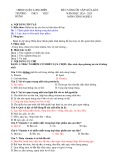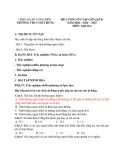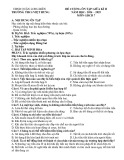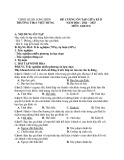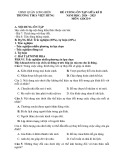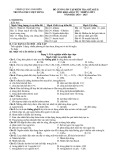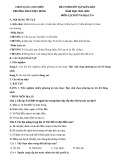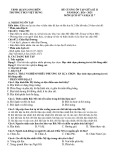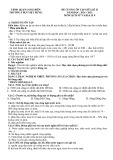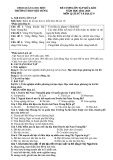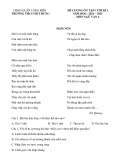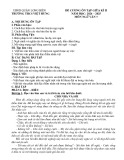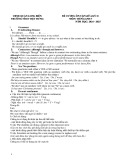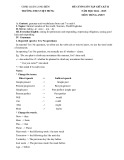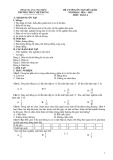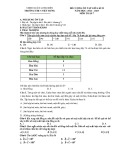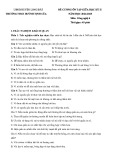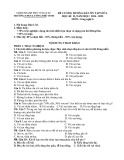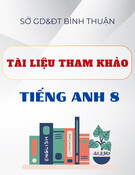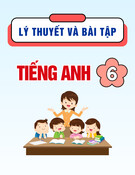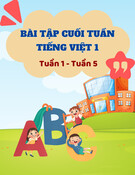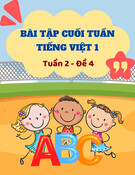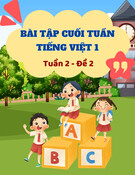
CU KHOI SECONDARY SCHOOL REVISION FOR THE SECOND MID-TERM TEST
GROUP: ENGLISH GRADE 7 – SCHOOL YEAR: 2023 - 2024
A. THEORY
From Unit 7 to Unit 9
I. Vocabulary:
- Vocabulary related to the topic of Unit 7: Traffics, Unit 8: Films, Unit 9: Festival around the world
II. Pronunciation: /aɪ/ và /eɪ/; /ɪə/ và /eə/
* /ai/ - /ei/
/ai/: /ei/:
i-e : fine, bike
y : cycle, fly
ai : train, sail
a-e : plane, race
a – ia, ie, io, iu : station, Canadian
* /iə / - /eə/
/iə /: /eə/:
ea : idea
ear : hear, ear, fear, clear
eer : peer, engineer
ee : pier
are : care, area, parent
air : chair, hair
ear : bear, pear, wear
eir : their
ere : there, where (-here, were)
* Stress in two-syllable words (Trọng âm của từ có 2 âm tiết)
- Với danh từ và tính từ có 2 âm tiết
Với hầu hết các danh từ hoặc tính từ có 2 âm tiết, trọng âm thường nhấn vào ầm tiết đầu.
Words Pronunciation Type Meaning
chapter /'tʃæptər/ n chương (sách)
summer /'sʌmər/ n mùa hè
music /'mju'zɪk/ n âm nhạc
better /'betər/ adj tốt hơn
active /'æktɪv/ adj năng động
easy /'i:zɪ/ adj dễ dàng
Ngoại lệ: Nếu danh từ có 2 âm tiết mà âm thứ 2 có chứa nguyên âm đôi hoặc nguyên âm dài thì trọng
âm sẽ rơi vào âm số 2.
Words Pronunciation Type Meaning
design /dɪ'zaɪn/ n bản phác hoạ
balloon /bə'lu:n/ n bóng bay
advice /əd'vaɪs/ n lời khuyên
estate /ɪ'steɪt/ n tài sản, ruộng đất
alone /ə'ləʊn/ adj một mình
- Với động từ có 2 âm tiết
Các động từ có 2 âm tiết: trọng âm thường nhấn vào âm tiết thứ hai.
Words Pronunciation Type Meaning
invest /ɪn'vest/ v đẩu tư
1





